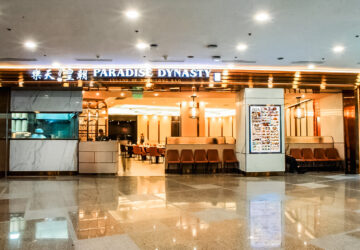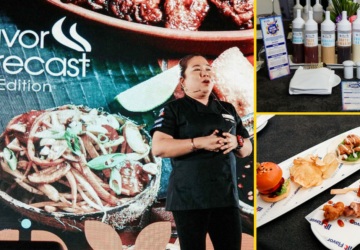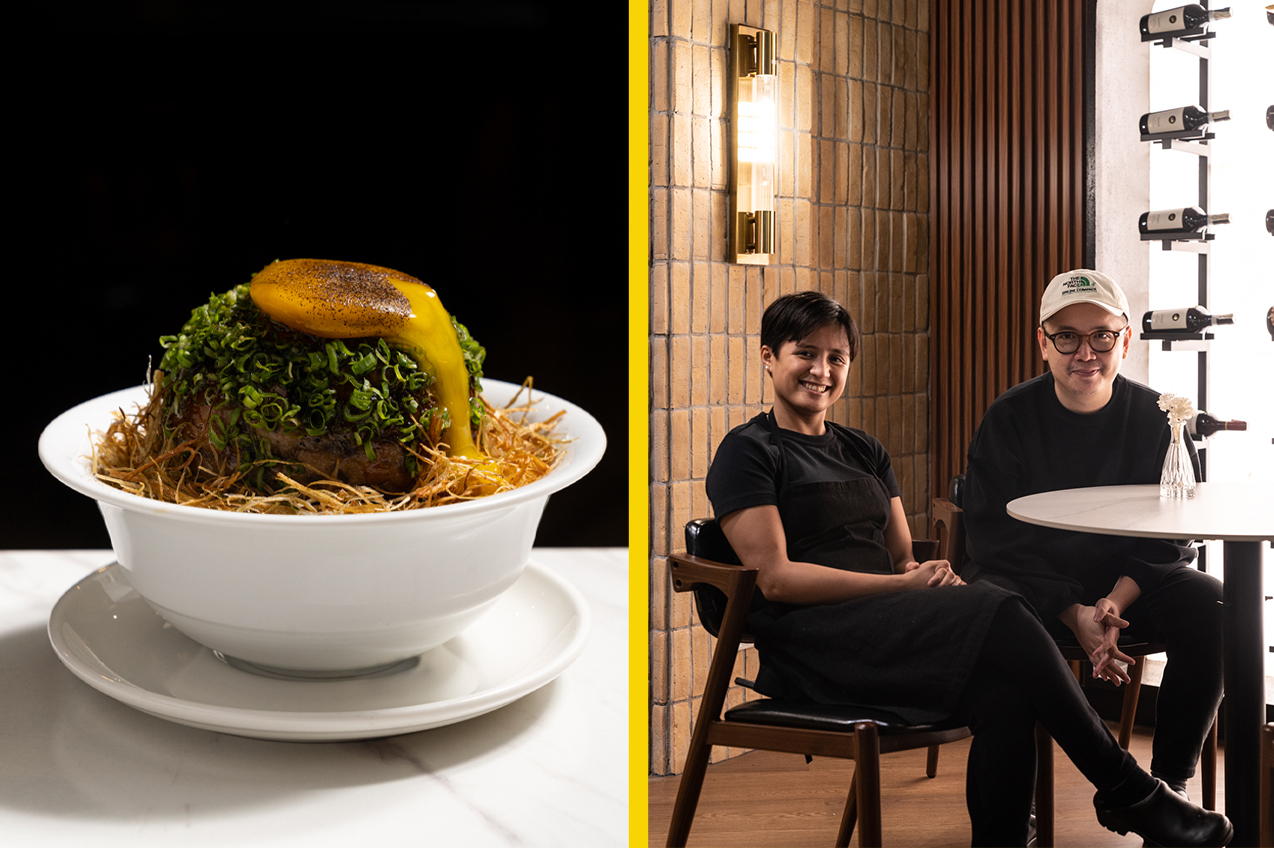It’s good to have Nicco Santos and Quenee Vilar “back” even if they never really left. That said, there is a change in the way these two approach food and the restaurant business now since the heartbreaking impact of the pandemic on the foodservice industry.
At the height of the global health crisis, while cooking nasi lemak in his apartment initially for family and friends before becoming a full-fledged home business called Sambar, Santos had an epiphany. “I realized that I was so happy cooking comforting, straightforward food. And then I also realized that all these years I’ve been overthinking so much, so coming into this, if there’s one thing I got pressed into, it’s that life is so short. I want to make sure I’m cooking things I truly love and people would also connect with.”
“There’s nothing special about my restaurant. If there’s something special about the restaurant, it’s the people in it. And the purpose of why we opened it,” says Nicco Santos.
He is of course talking about Café Aurora, his new venture with Vilar and seasoned corporate and banking lawyer Nilo Divina of leading law firm DivinaLaw.
The partnership started with a message on Facebook in February 2022 and while it may seem like a surprise on paper, delve a little deeper and you would understand that Santos, Vilar, and Divina are all cut from the same cloth.
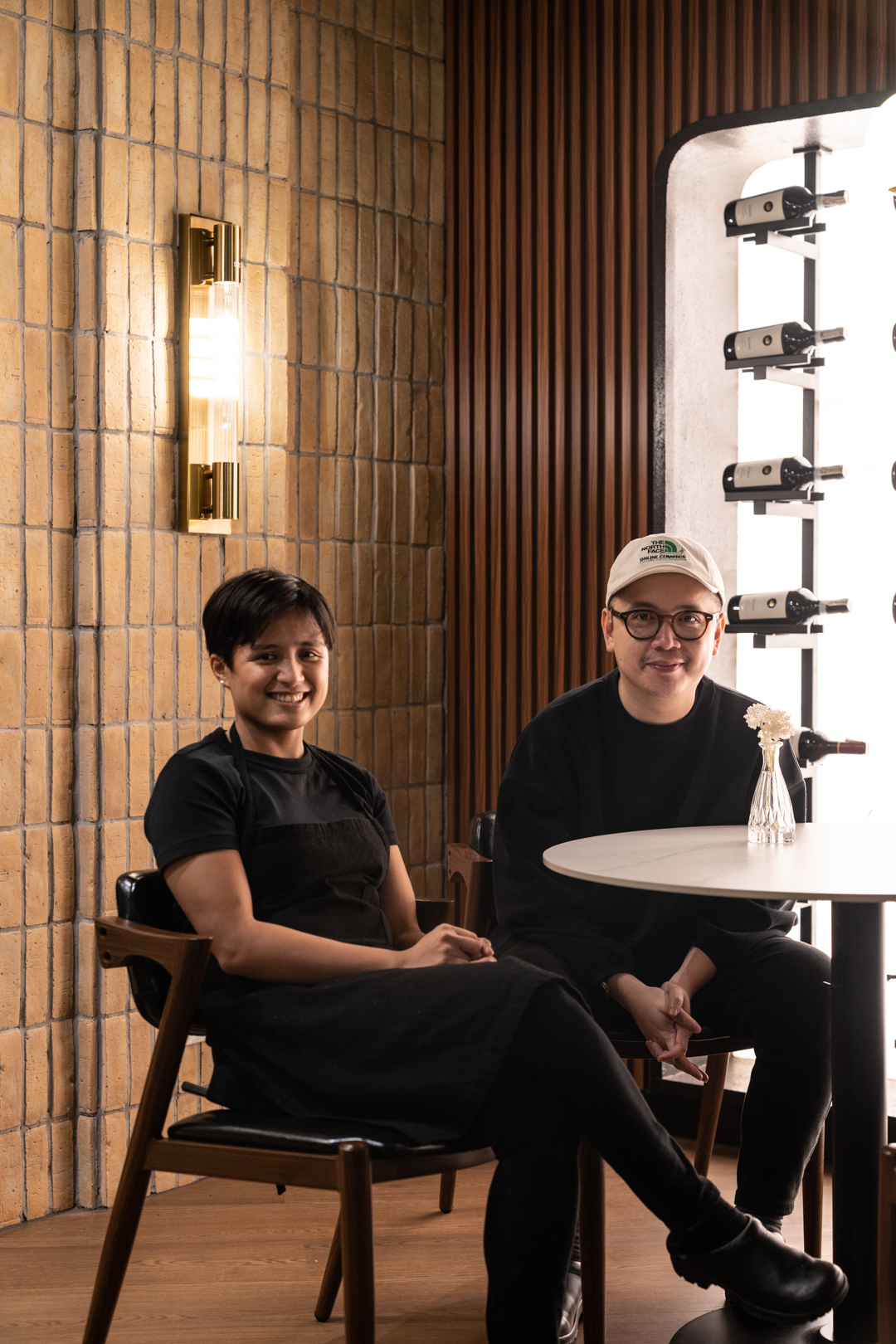
“We had to make sure that our values were aligned,” Santos says about making the decision to return full-time in the restaurant setting again. “Nilo is the best at what he does because he takes care of his staff. That’s his number one trait. How he treats his senior partners is the same as how he treats the server or janitor. That’s how I work also. When we found that we shared those principles and values then we decided to come together and open this restaurant.”
So it’s not surprising that as far as Cafe Aurora is concerned, Santos and Vilar aren’t holding anything to chance. Nor are they holding anything back from making the restaurant a confident statement of expression and evolution.
Cooking a new life at Café Aurora
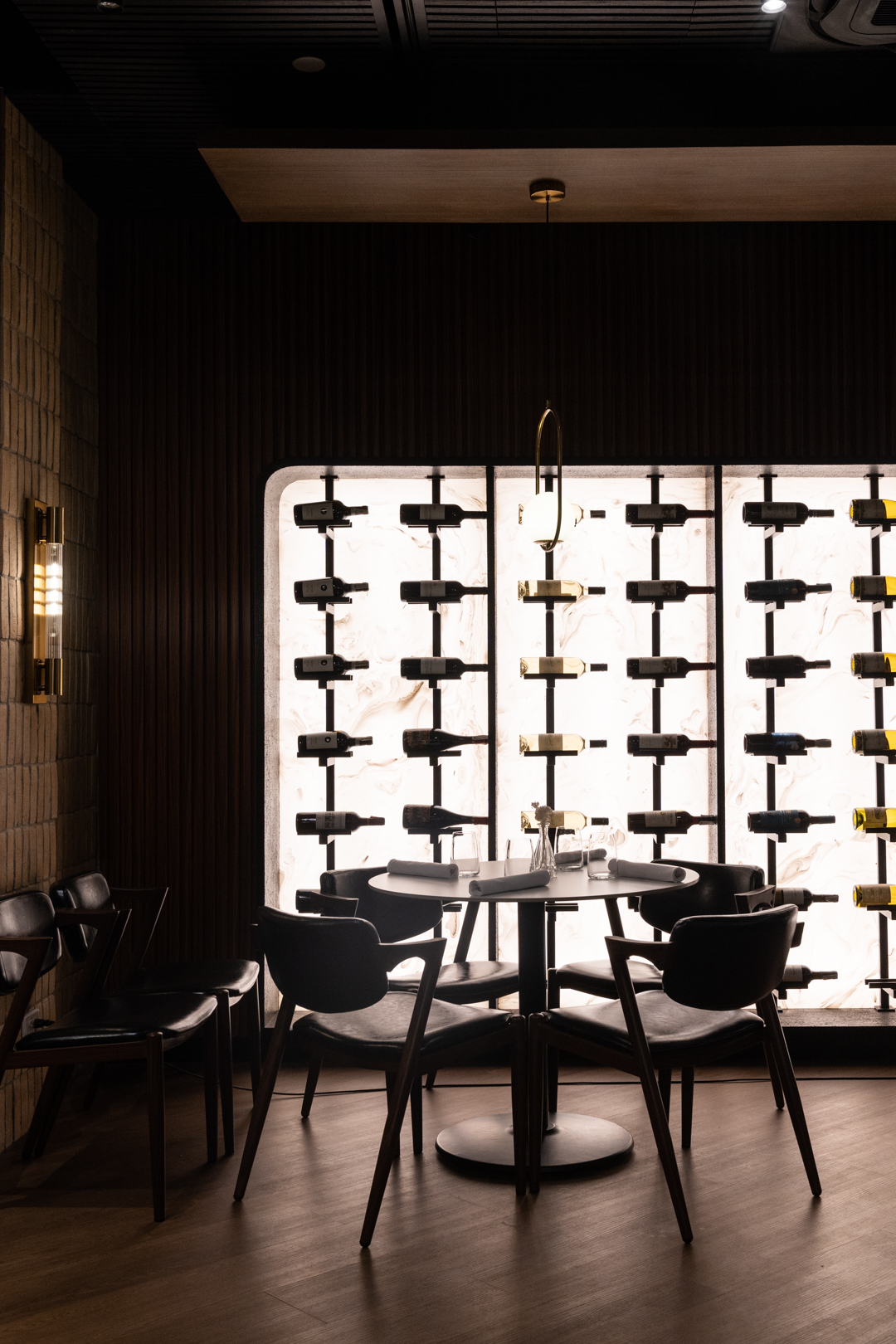
The road to Café Aurora’s emergence is paved with good intentions even if it came in the wake of a successful restaurant that burned brightly but briefly. Many are familiar with the duo’s time at Hey Handsome but with Café Aurora, Santos and Vilar are looking towards a future that’s akin to the break of dawn.
Rather than try to rehash their past success, the twosome instead tread more familiar territory, all the while wading through expectations and polishing their personal evolution that is evident in the menu, the employee management, and the customer experience.
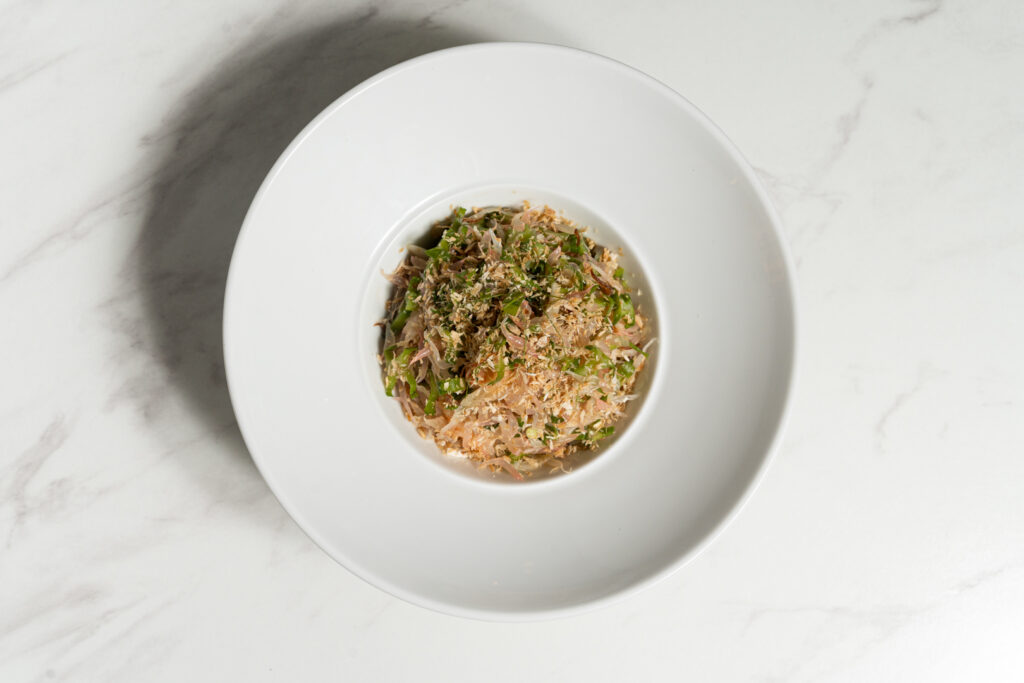
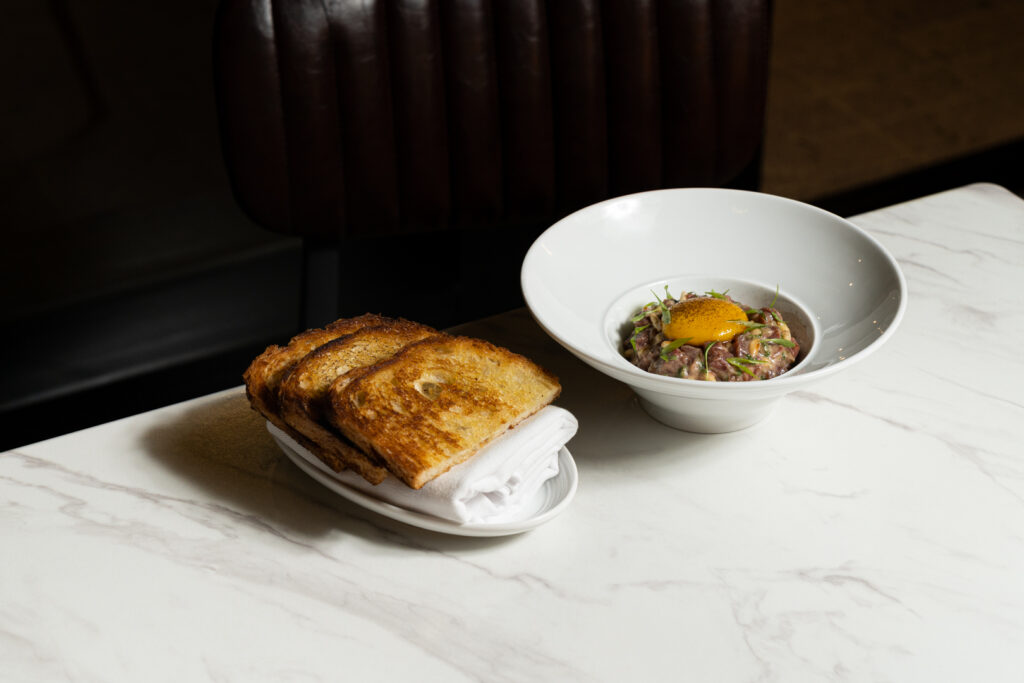
The gorgeous yet black-heavy space was formerly part of the main lobby that housed a coffee shop and a milk tea shop, a prepaid loading station, small stalls selling various products, ATMs, a secondhand bag shop, and random stands you probably wouldn’t see in a corporate building.
But Santos and Vilar are true professionals when it comes to understanding what a space or a dining market needs. The moment they found out the exact area they could use, the two almost instantaneously visualized how the workflow would be—where the kitchen would be located, where the guests would be received, where a private space could be constructed for entertaining high-profile corporate clients.
There was just one catch: The menu had to be revamped.
“The menu before was all-day dining when we were doing [R&D] in the test kitchen and then when we saw the space, everything needed to be different,” reveals Quenee Vilar. “We had to alter the menu into something that’s appropriate for more ‘sit-down’ dining.”
“The menu before was all-day dining when we were doing [R&D] in the test kitchen and then when we saw the space, everything needed to be different,” reveals Vilar. “We had to alter the menu into something that’s appropriate for more ‘sit-down’ dining.”
“Initially this was supposed to be a fine dining restaurant called Celera but it didn’t make sense when we did the numbers with a space this big,” says Santos. “We would just be so pressured [to meet targets]… and eventually we would lose our love for food so we decided to just move the concept to the basement.” This underground degustation concept would be housed in a smaller space that can accommodate 20 people with a tentative opening sometime in the last quarter of the year.
Not a ‘handsome’ menu
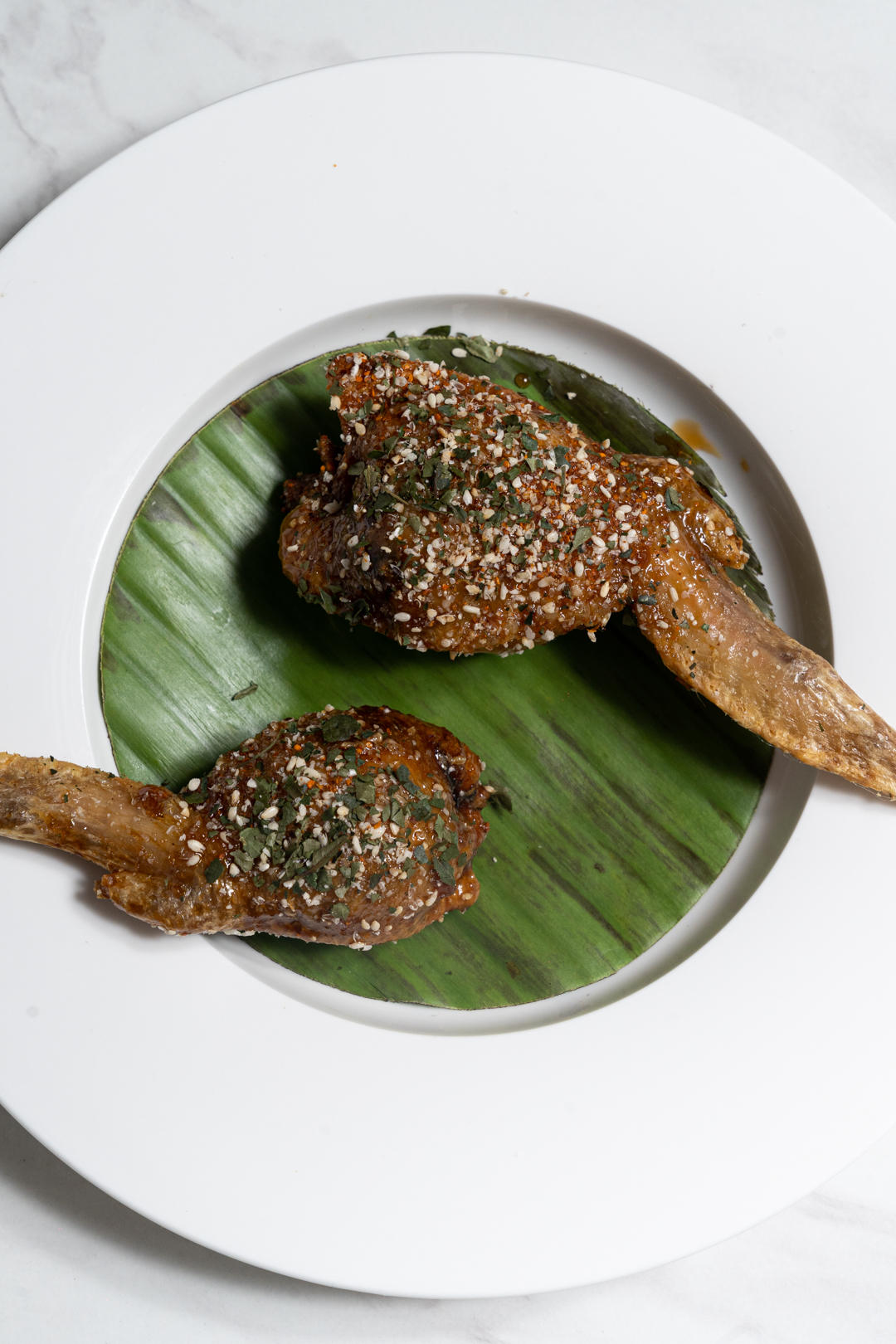
Make no mistake though: Café Aurora is no Hey Handsome 2.0. Or any restaurant they have done before for that matter.
Café Aurora emphasizes how far Santos and Vilar have come as chefs even prior to the pandemic’s assault. This time around, both also benefited from the insights that their cooks and staff gave them. For starters, there’s a pomelo salad overflowing with a sense of acidic adventure from the citrus fruit and the soured coconut cream that complements the understated poached prawns. The tartare made with “yukhoe” beef tenderloin (Korean-style raw and seasoned meat), pear, sesame, soy dressing, and egg yolk over a tasty sourdough adds some punch into the sharing selections.
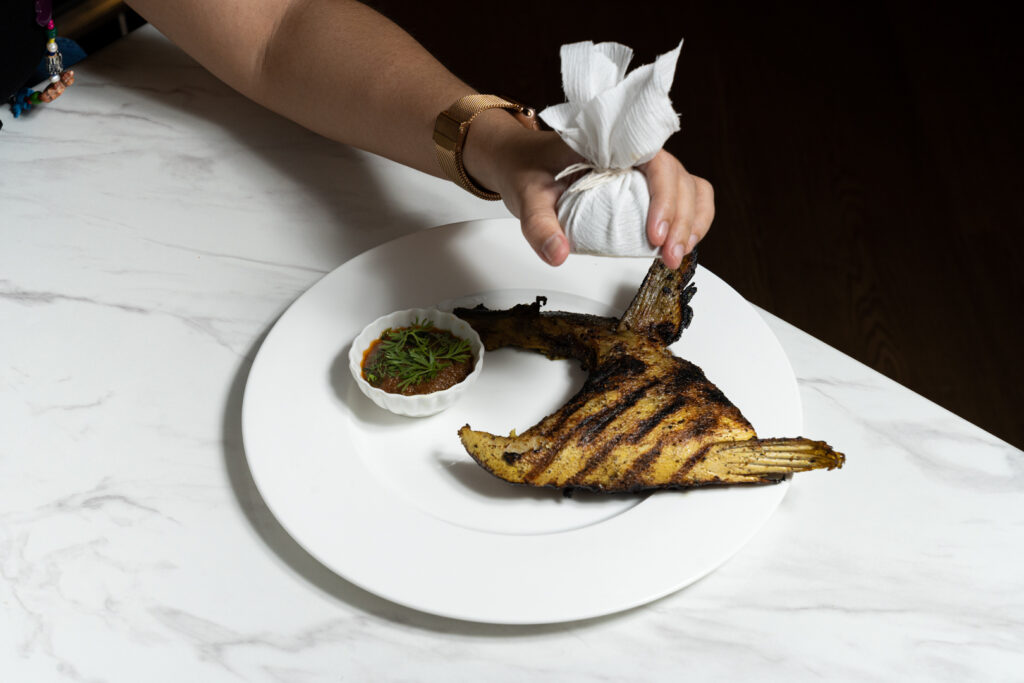
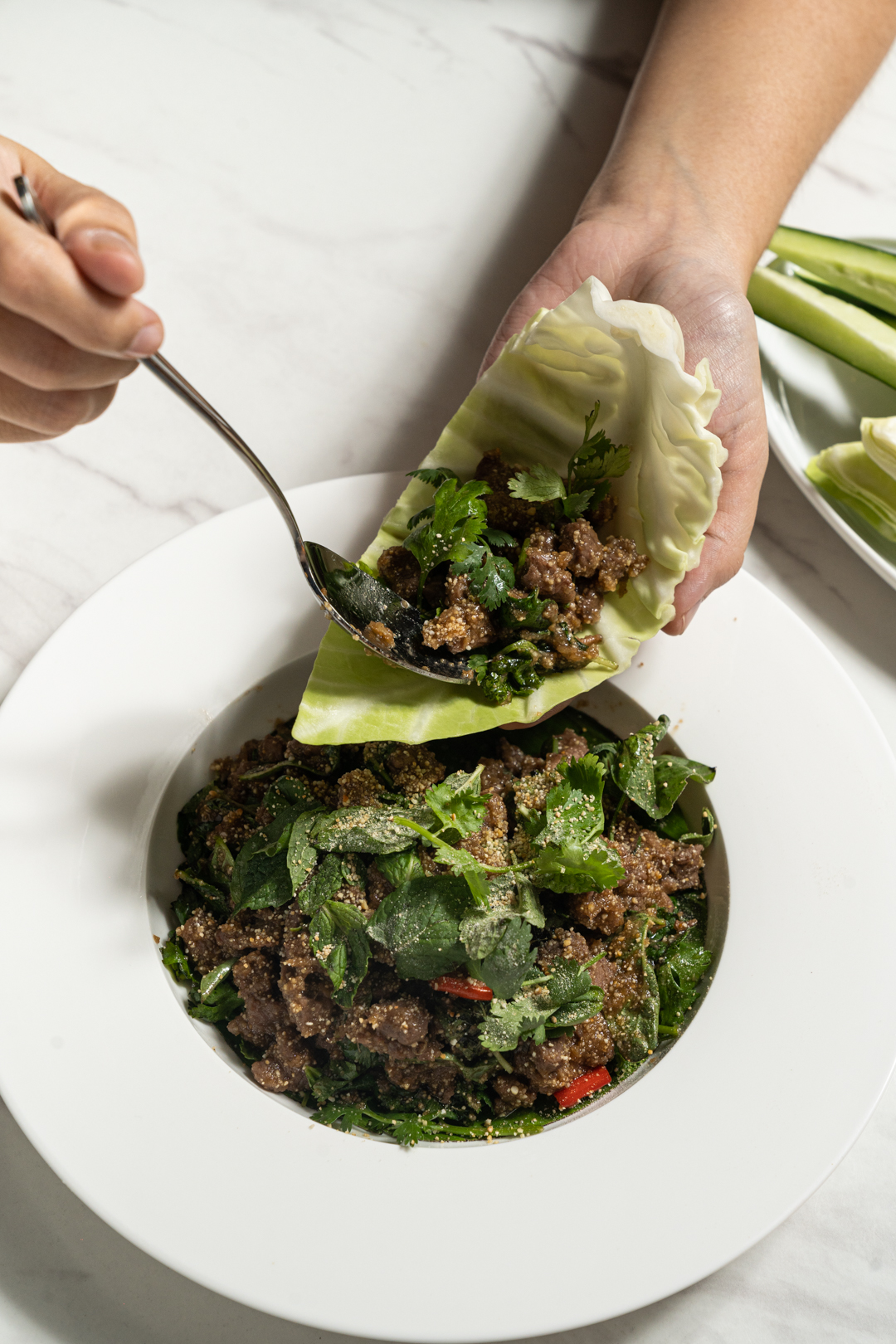
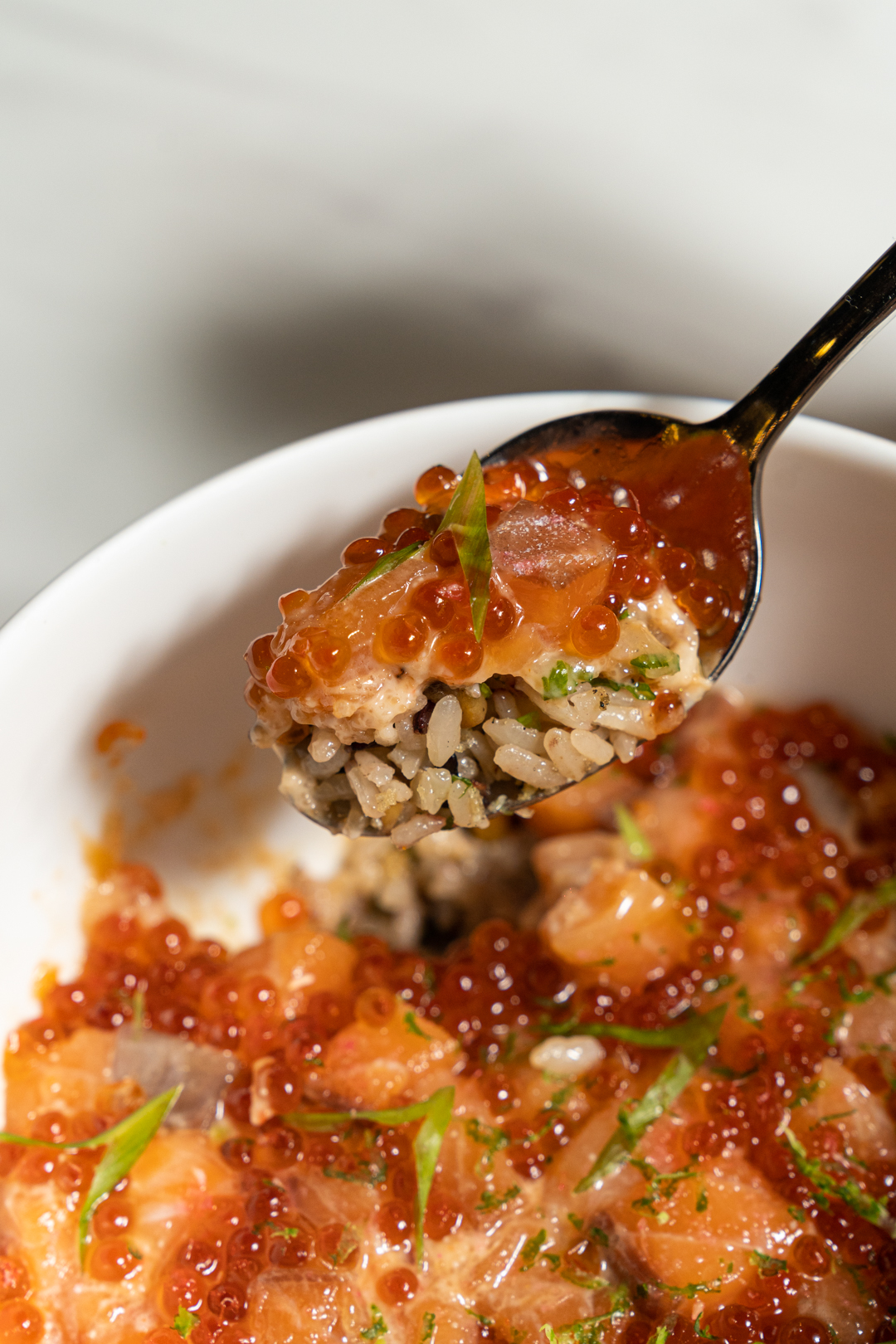
Also worth noting are the fried wings filled with marmite-butter sauce, curry, and sesame seeds—which nod to both nostalgia and more grown-up dining pleasures—and a peanut butter cheesecake that features mixed berry jelly and beetroot crisps.
And even when they reference signature moves—like that salmon donburi everyone knows and loves or a remarkable Malay-style rendang that showcases the identity they have built over the years—there is a level of maturity that makes Café Aurora already a triumph in and of itself, even if the expectations can sometimes feel paralyzing.
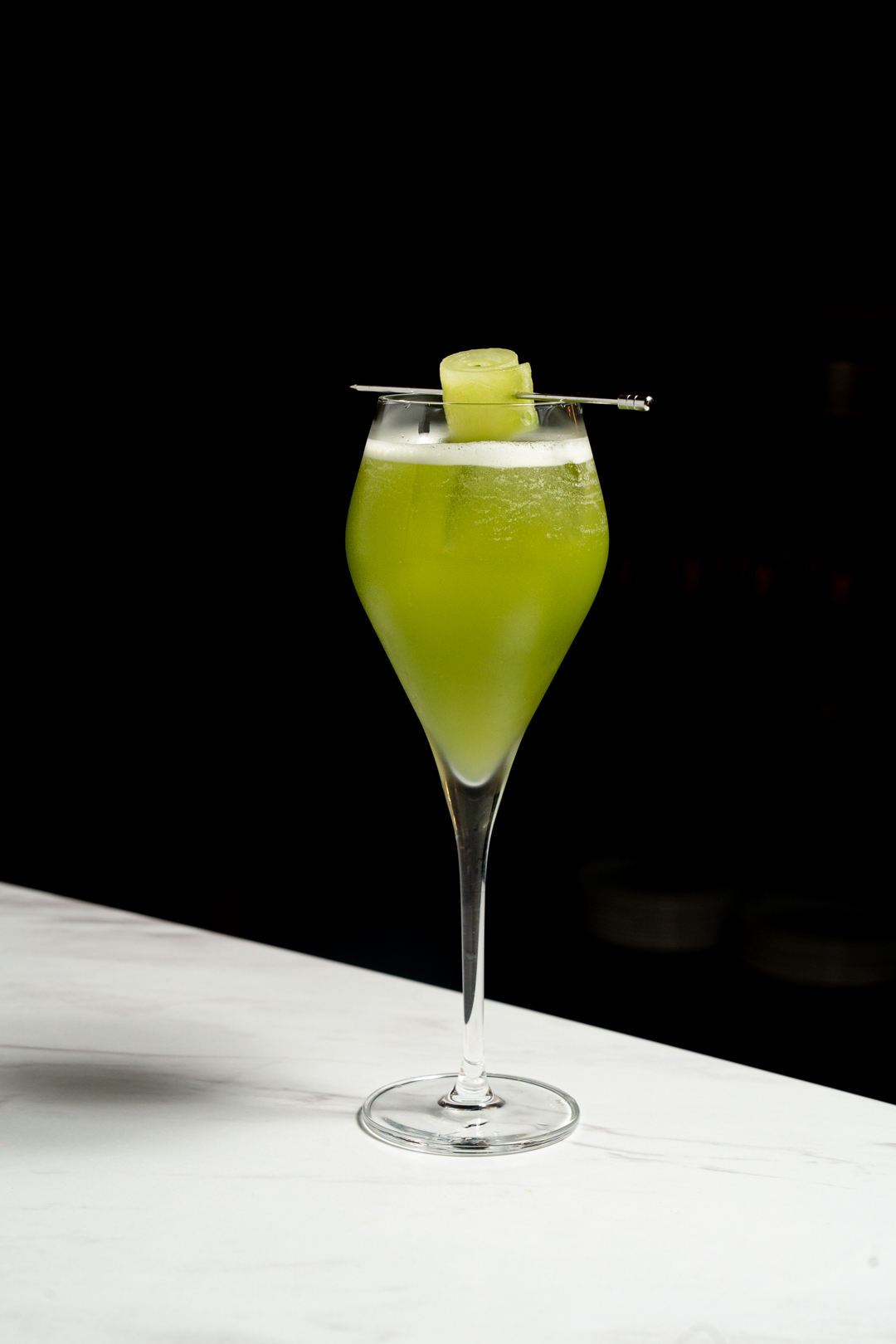
“Months leading into this, I was particularly scared because I’m coming into this like I’ve never opened a restaurant,” admits Santos. “Because the mindset of consumers now is very different due to what we just went through. I also think the value of money is more precious now. So the pressure I’m feeling is that I need to be really sure about what I’m going to put out because I want you to feel that when you’re eating here, the money spent is worth it. I need to be precise and intentional with what I’m going to put out. It needs to be familiar, it needs to connect. It needs to give you a sense of comfort.”
“My purpose for working this hard again is to make everyone’s lives better. I was happy cooking in my apartment to be honest for Sambar but this is for a bigger purpose,” says Santos.
The intention is also visible in the way they plate the dishes and in opting for white plates where they have nowhere to hide. “The intentionality of the plating [shows our mindset of] whether this particular ingredient is necessary. Now we think of kung paano nila kakainin [the dish], kailangan namin pag-isipan since there are corporate people too who are going to be eating here because of the building and location,” explains Vilar.
“For example, the lamb rendang, it’s separate because sometimes it can be hard [to eat] when there are too many elements in one plate and then you cannot distinguish how to eat it. Now, this new thought process is present [across the restaurant].”
The perks of the job are staff-focused
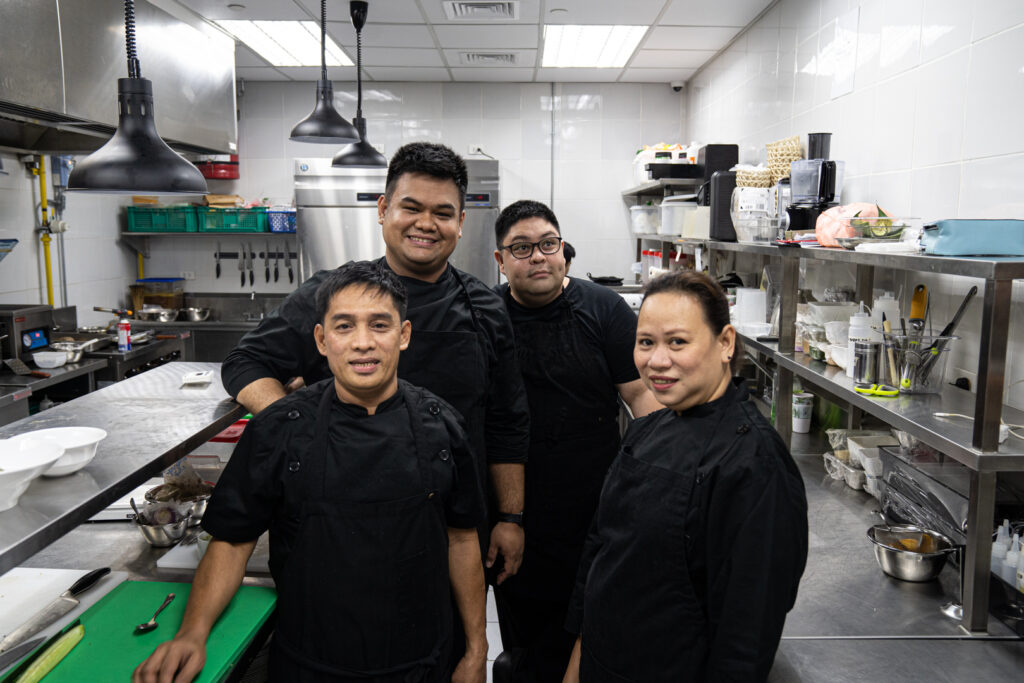
The deviations to their Southeast Asian cuisine roots aren’t drastic but they are palpable enough to comprehend what exactly the duo are trying to do. Leaning less into experimentations and more into building relationships into the experience.
“I want to reconnect with as many people as I can and Quenee and I will be able to do that with a menu that’s easy, familiar, nostalgic, comforting. We want to see [the customers] as frequently as we can. At Hey Handsome, it was so different that… it’s something you’d have once and then you’d have it again after a few months.”
Where Hey Handsome afforded them collaborations and overseas recognitions, the feeling at Cafe Aurora is different. “When we experiment now, it needs to be strategic. There’s a balance now,” says Santos. “If at Hey Handsome we had 100 percent new customers, now we need to be 70 percent regulars and 30 percent new customers,” says Santos about the importance of retention in restaurants.
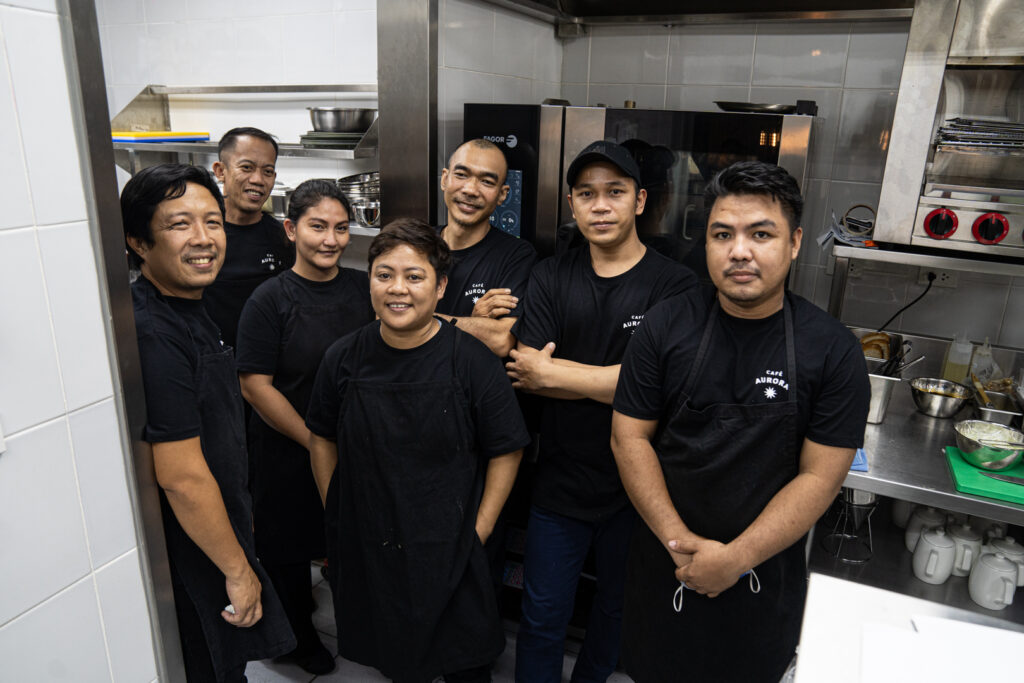
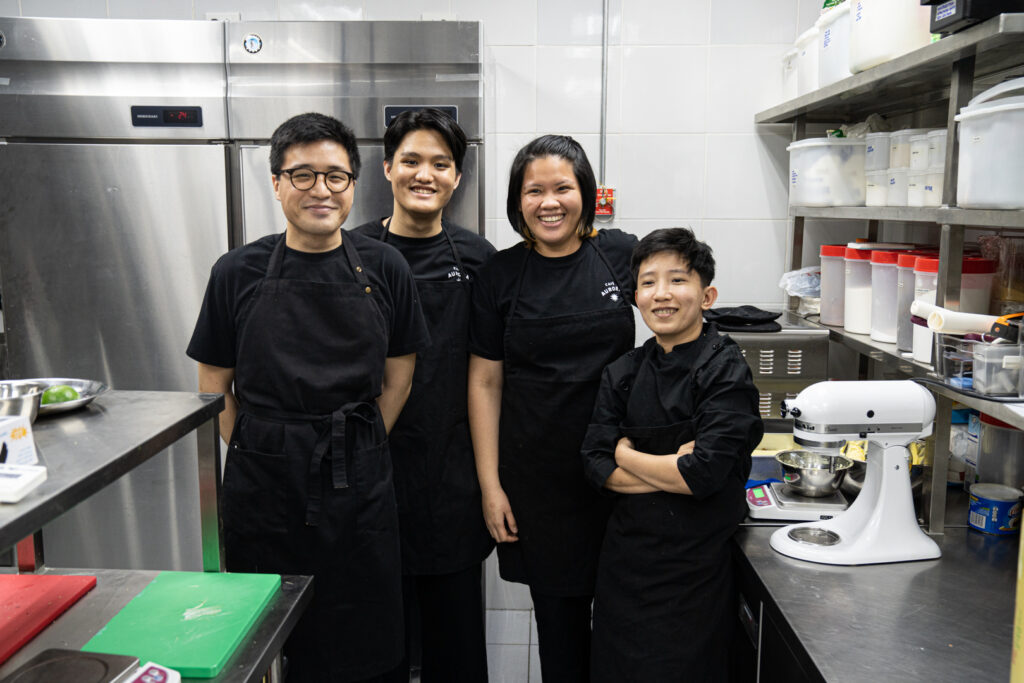
There is also plenty of attention given to their personal advocacies, particularly when it comes to treating people fairly, which includes paying proper wages, looking after physical and mental health, and fostering a kinder kitchen culture in an industry that can sometimes be cruel. Santos explains that this healthy culture is augmented at Cafe Aurora, where not only do everyone get two days off and follow a compressed workweek, respect and empathy are aptly upheld.
“When you have issues with family, it shows up here [in your work],” says Santos. “Before we go into service, we talk about stuff we’re going through so we can look out for them. When all these aspects in life are working, work becomes a lot better.”
Many of Café Aurora’s core staff also came from their previous stints—yet another proof of the duo’s desire to be “surrounded by family.” It’s a rare feat to strive for sustaining relationships even beyond the environment it started. But that is just who Santos and Vilar are: They hold special significance to people who matter because having a group of people you can count on as much as they count on you can have meaningful results in one way or another.
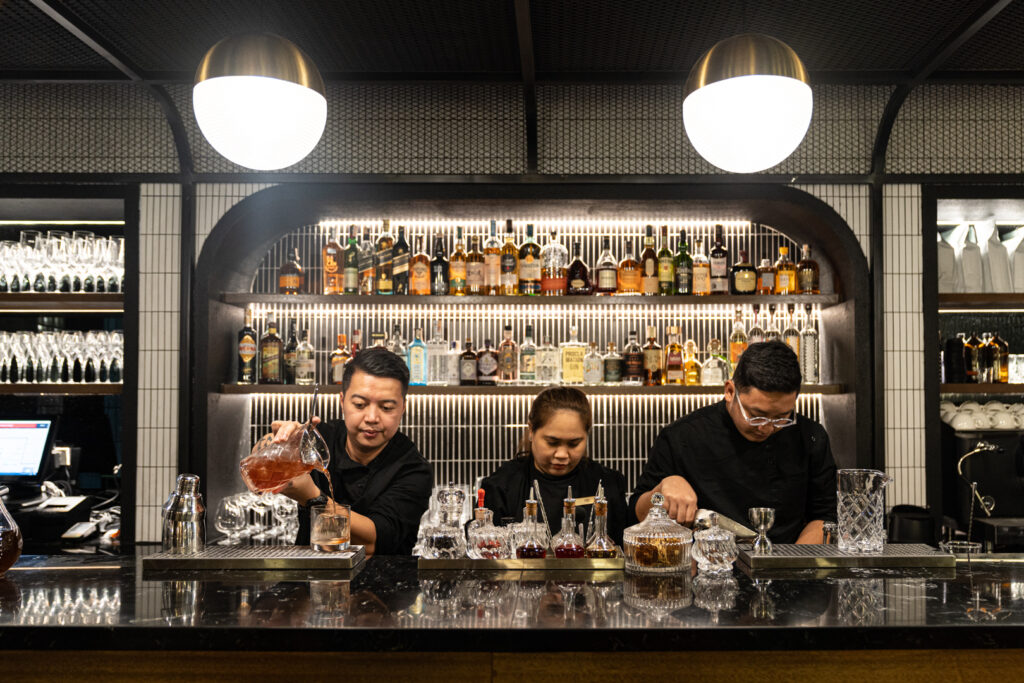
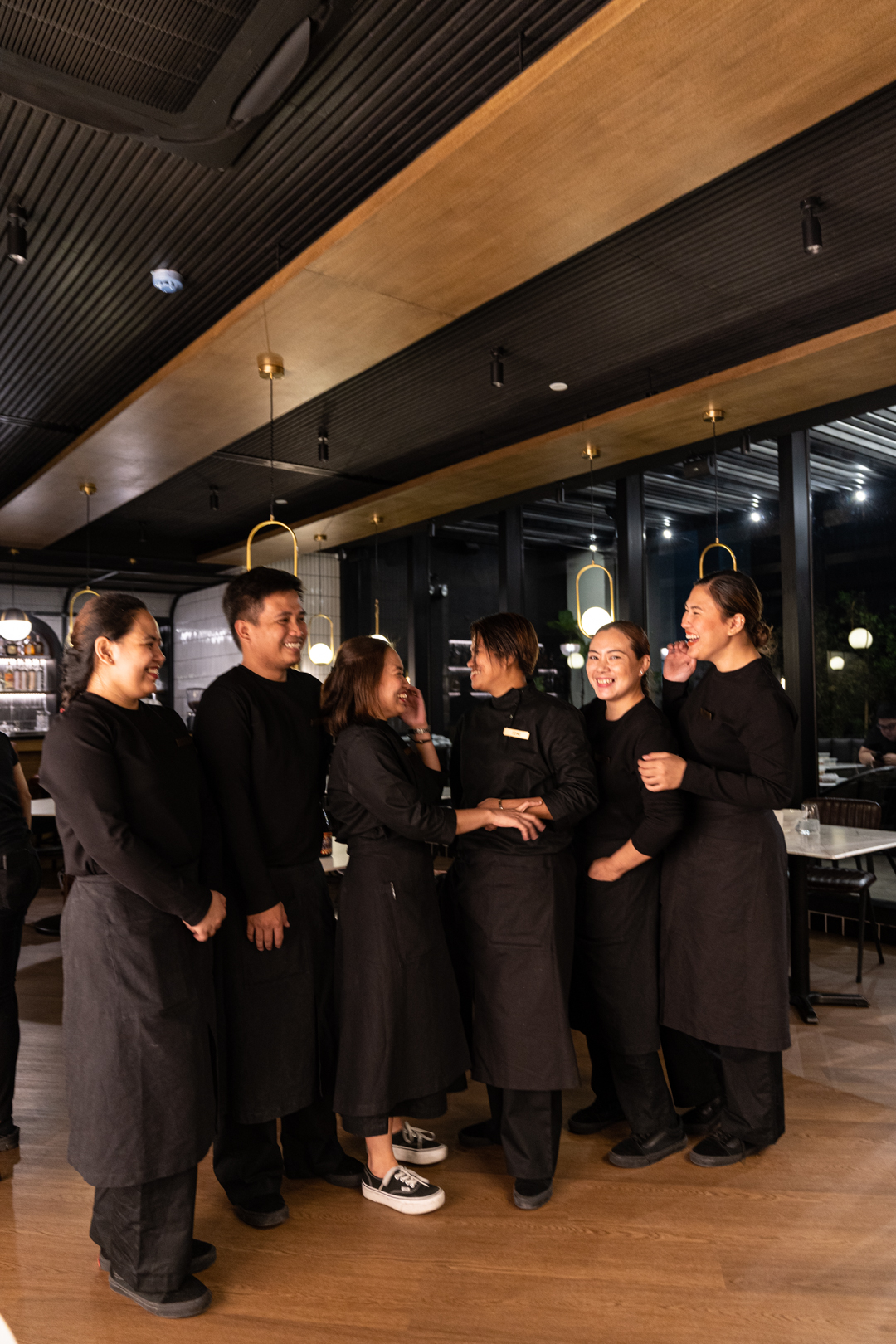
“My purpose for working this hard again is to make everyone’s lives better. I was happy cooking in my apartment to be honest for Sambar but this is for a bigger purpose.”
With that kind of thinking, you can’t not root for Santos, Vilar, and everyone behind Café Aurora. And we’re all the better for it having them all back in business.


